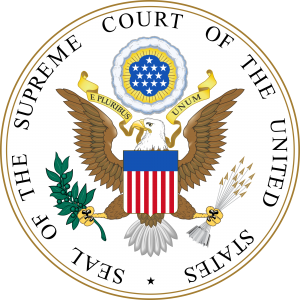Patent Infringement and Patent Invalidity Proceedings in Germany
As regards proceedings relating to patent infringement, Germany is the number 1 jurisdiction in Europe selected by patentees. In addition to moderate costs, the quality of the judges, and the predictability of the outcome, the German court system plays a role in this choice.
Germany has a “bifurcated” system. There are civil courts (most notably Düsseldorf, Mannheim and Munich) that are responsible for patent infringement proceedings (in the following: patent infringement courts), and there is the Federal Patent Court based in Munich that is responsible for patent invalidity proceedings (also known as patent nullity proceedings).
One main difference to other jurisdictions is that the patent infringement courts do not decide on the validity of the asserted patents. This has significant implications for the initially paid court fees. The court fees have to be initially paid by the party starting the proceedings. That is, the patentee has to initially pay the court fees when starting the infringement proceedings. On the other hand, the alleged infringer (or any party seeking to invalidate a patent) has to initially pay the court fees for the patent invalidity proceedings.
Another important consideration relates to the timing of the proceedings. First instance infringement proceedings typically last for about 1 year. First instance patent invalidity proceedings typically last for about 2.5 years. That is, one usually receives a ruling on patent infringement before receiving a ruling on patent validity. This may be most relevant for the cease and desist claim, as it may happen that (subject to a security by the plaintiff) the patent infringement court orders the alleged infringer to cease and desist from using an invention after one year, and that the patent is only found to be invalid 1.5 years later.
In light of this, there is the concept of staying the infringement proceedings. If the patent infringement court arrives at the conclusion that it is likely that the asserted patent will be invalidated in invalidity proceedings, it can stay the infringement proceedings. However, the patent infringement courts are generally reluctant to grant such a stay of proceedings, and the overall statistics is that only about 10% to 20% of the patent infringement proceedings are stayed.
All these aspects have to be taken into consideration when deciding whether or not so start patent infringement proceedings, in which country to start such proceedings, and which court to use for such proceedings.
Corresponding considerations apply for the defendant as well –the alleged infringer also has to take the above timings and probabilities into account when developing a defense strategy.
![]() We note that the above article is a general outline of patent infringement and invalidity proceedings in Germany. Such an article can never replace individual legal counselling. If you have any questions relating to patent infringement and patent invalidity proceedings in Germany, please feel free to contact us at mail@stellbrink-partner.com. We are always happy to help you.
We note that the above article is a general outline of patent infringement and invalidity proceedings in Germany. Such an article can never replace individual legal counselling. If you have any questions relating to patent infringement and patent invalidity proceedings in Germany, please feel free to contact us at mail@stellbrink-partner.com. We are always happy to help you.

 In einem derzeit dem US-Supreme Court vorliegenden US-Patentverletzungsfall (Life Technologies Corp. v. Promega Corp., No. 14-1538) könnte bald eine Entscheidung zur indirekten Patentverletzung ergehen, die den Handel mit und vor allem aus den USA risikoreich gestaltet. Auch sogenannten Patent-Trollen würde damit weiteres erhebliches Störpotential geliefert.
In einem derzeit dem US-Supreme Court vorliegenden US-Patentverletzungsfall (Life Technologies Corp. v. Promega Corp., No. 14-1538) könnte bald eine Entscheidung zur indirekten Patentverletzung ergehen, die den Handel mit und vor allem aus den USA risikoreich gestaltet. Auch sogenannten Patent-Trollen würde damit weiteres erhebliches Störpotential geliefert.

